This study argues that rigorous, science-based monitoring is crucial for tracking food system transformation toward global sustainability goals.
Other content with the tag "Accountability".

The study investigates four Public-Private Partnerships (PPPs) in Mexico, revealing a lack of public information on their implementation and effect
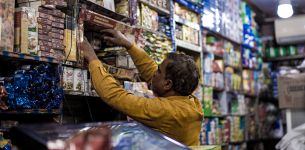
The India Index 2023 shows the current state of play of food & beverage companies' contributions to diets and the food environment in India.

This report presents operational food surplus and waste data from the CGF’s Food Waste Coalition members.

This year’s report introduces true cost accounting (TCA) as an approach to uncovering the hidden impacts of our agrifood systems on the environment

The adoption of a harmonised front-of-pack nutrition labelling (FoPNL) scheme has significant advantages from at least four perspectives.

According to the data of the Ministry of Environment and Forestry (MoEF) of the Republic of Indonesia, in 2018, as much as 44% of waste generation

There is a widely recognized need to increase funding available for improving nutrition in low- and middle-income countries and to move beyond trad

New methods for combined evaluation of nutritional and environmental aspects of food products are needed to enable a transformation of dietary guid

The aim of this paper is to summarise current trends and new developments with regard to institutional investor actions related to nutrition and ob

Global food systems face unprecedented challenges Food plays a crucial role in all our lives, not only in supporting our physical and mental health

Access to Nutrition Initiative (ATNI) has been commissioned to benchmark the world’s 25 largest food and beverage (F&B) companies’ lobbying-rel

In his book Doing Well by Doing Good, Derek Tribe made the case for investing in agricultural research in our developing country neighbours.

In recent years, the role of seafood or the ‘blue food’ as alternative animal protein has also been investigated, amid concerns over the impacts of

The global food system is responsible for more than 30% of total climate change emissions and 60% of biodiversity loss, and retailers – the bridge

Driven to Waste: Global Food Loss on Farms, a report from WWF and Tesco, reveals an estimated 2.5 billion tonnes of food goes unea

It’s a dire statistic: 33 to 40 percent of the world’s food is lost or wasted every year.

The SUN Business Network (SBN) is the private sector branch of the Scaling Up Nutrition (SUN) Movement and aims to support businesses to grow the r
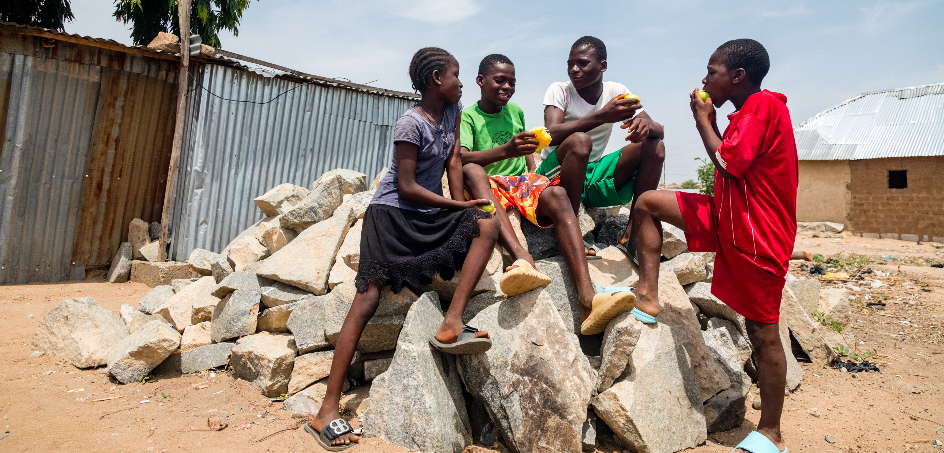
The SUN Business Network (SBN) is the private sector branch of the Scaling Up Nutrition (SUN) Movement and aims to support businesses to grow the r

The SUN Business Network (SBN) is the private sector branch of the Scaling Up Nutrition (SUN) Movement and aims to support businesses to grow the r

The SUN Business Network (SBN) is the private sector branch of the Scaling Up Nutrition (SUN) Movement and aims to support businesses to grow the r

This peer-review article in BMJ Nutrition Prevent & Health highlights an important area where public and private sectors need to align: brand a
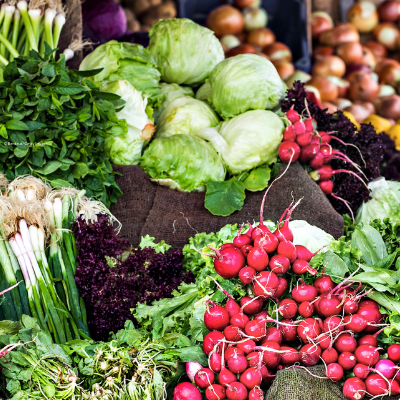
The findings in this peer-reviewed journal article are based on a literature review and 30 semi-structured interviews with individuals involved in

This article explores potential conflict of interest that may arise when the private sector funds university research.

These two user-friendly and informative toolkits were launched with support from SUN Movement partners, to guide member States create or improve mu

Between 2018 and 2021, GAIN conducted research and consultations to assess and improve business accountability in nutrition.
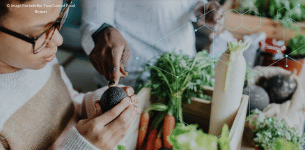
In this report by the Rockefeller Foundation, the true cost of the U.S. food system is analysed and calculated.

This blog from the World Benchmarking Alliance (WBA) highlights some of the key elements of the forthcoming Food and Agriculture Benchmark, a ranki

On Tuesday, 20 July 2021, the Global Alliance for Improved Nutrition (GAIN), the

This report is a comprehensive overview of the role circular economies can have on the longevity, sustainability and viability of healthy food syst

Acknowledging the critical role of private sector in nutrition - as the almost entire supplier of food worldwide – the Global Alliance for Improved

Third ATNI COVID-19 report highlights corporate responses to the pandemic in India, Mexico and Nigeria.

In response to questions from Unicef country offices, this guidance note was prepared to give advice on accepting financial contributions or contri
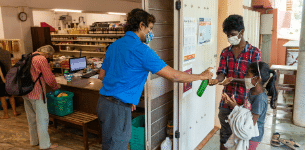
This document sets out the results of an assessment by ATNI of 39 of the world’s major food manufacturers, which have been includ
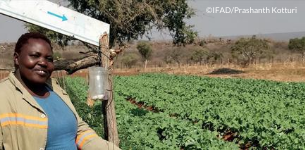
Lack of accountability and follow up project planning is an issue that can limit many PPEs.

In this paper, the authors examine "how different aspects of trade can constrain or enable governments’ ability to implement food system-level acti

This report on "Emerging Trends and Analysis of the SDG Impact of Companies in the S&P 500®" looks at how companies are spending and reporting

On 11th February 2020, The Consumer Goods Forum (CGF), the Global Alliance for Improved Nutr

The Health Star Rating is a front-of-pack labelling system that rates the overall nutritional profile of packaged food and assigns it a rating from

The World Benchmarking Alliance (WBA) was established to drive wider and deeper participation from the private sector in the global efforts towards

B Impact Assessment is a network of businesses that seek to transform understanding of business success by measuring and managing impact and profit

The 2018 Global Nutrition Report shares insights into the current state of global nutrition, highlighting the unacceptably high burden of malnutrit

The Global Food Safety Initiative (GFSI) is a network of experts committed to reducing food safety risks, minimising duplication and costs and buil

The Global Access to Nutrition Index focusses on the role that food and beverage manufacturers play in making healthy food affordable and accessibl

A new survey from McKinsey finds that "executives and investment professionals largely agree that environmental, social, and governance programs cr

This report looks at the top 10 global trends that are shaping how companies are perceived, and priorities for reputation management.

This report from Stichting Global Reporting Initiative (GRI) and UN Global Compact and PRI provides perspectives and recommendations on the key par

The Food and Agriculture Business (FAB) Principles are the outcome of a broad and inclusive multi-stakeholder process comprising over 20 consultati
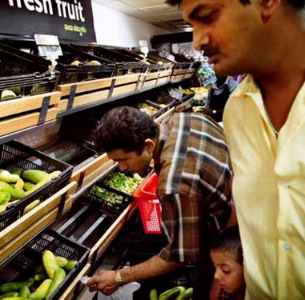
This is Chapter 8 from the 2015 Global Nutrition Report - Actions and accountability to advance nutrition and sustainable development.
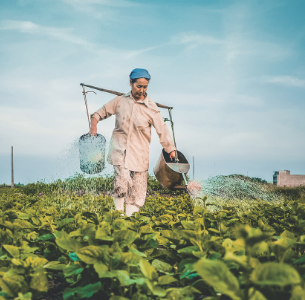
The Global Nutrition Report (GNR) commitment tracking tool provides the latest data on commitments to end malnutrition made by governments, civil s

In this report, the World Benchmarking Alliance (WBA) identifies seven systems transformations that are key to addressing the SDGs, and where busin
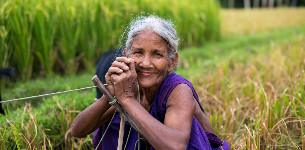
Estimating the cost of a basic but decent lifestyle for workers and families
The Global Living Wage Coalition (GLWC) was formed by Fairtr
The Partnerships Resource Centre (PrC) conducts research projects to facilitate further knowledge accumulation and learning in the area of sustaina
This paper by IDH – Sustainable Trade Initiative gives extensive evidence on how to deliver models that provide service delivery to smallholder far
There are relatively few peer review articles looking at risk assessment for entrepreneurs in the healthy food industry.
This paper provides a business case for investing in India.
EAT and the World Business Council for Sustainable Development (WBCSD), together with Food Reform for Sustainability and Health (FReSH) convened a
People’s perception of their ability to meet their needs and the level of autonomy they feel they can exert over their own lives directly correlate
Restricted access article looking at what it takes to scale piloted development projects and solutions.
Restricted access article looking at how innovation is essential to meeting the U.N. Sustainable Development Goals.

This is an uplifting evidence-based assessment of what it takes to successfully campaign against corporate power.
This paper assesses how employee nutrition impacts on productivity, absenteeism, and healthcare costs.
The Global Alliance for Improved Nutrition’s Marketplace for Nutritious Foods program sparks private sector production and marketing of nutritious
The Global Alliance for Improved Nutrition’s Marketplace for Nutritious Foods program sparks private sector production and marketing of nutritious

The International Agri-Food Network brings together thousands of international companies and national associations under the umbrella of fourteen i
Ever wondered what it’s like for the people growing your chocolate? Ever thought that they may be children?
The Center for Strategic and International studies have looked at the impact of Feed the Future Investments in Guatemala.
This short blog in Agrilinks gives a set of practical recommendations for knowledge management from CARE’s West Africa office.
Partnerships for Forests provides financial and technical assistant to help partners do business differently when it comes to land use and preventi

Seventy-five percent of the global food supply comes from 12 plant and five animal species – this report by WWF, Washington University, and food gi
The growing power of supermarkets comes at a cost.
Two page briefing by IBM looking at the causes of supply chain inefficiencies.
Irresponsible resource management does not make business sense – a truism that Kavita Prakash-Mani and Joao Campari at WWF call out in this blog.
Cocoa may not be the most nutritious of agricultural products, but it has huge environmental and economic importance.
Peer review article in Hidden Hunger: Malnutrition and the First 1,000 Days of Life: Causes, Consequences and Solutions.
Restricted access paper looking at the role for public private partnerships in making agriculture value chains work for smallholder farmers, based
Results of a day-long meeting between food industry scientists, food, nutrition, and health related scientific societies and various U.S.

This review gives an overview of food-based dietary guidelines by region and date, alongside looking at key messages about certain produce.

The Committee on World Food Security is a collaboration of international agencies, civil society, and the private sector focusing on policy issues
Public information on Pepsico's agricultural commodities. For more information on Pepsico’s core business and reporting standards go to our Advanci
Multinationals have the power to change people’s relationship with food – as this short opinion piece demonstrates.
Partnership between Unilever, DSM, Gain, Mondelez, U.N.
One-page correspondence in the Lancet looking at the benefit of investing in workplace wellness programmes in India.

Many mothers experience barriers to maintaining a breastfeeding relationship with their infants after returning to work.

This report produced by the UK Health Forum provides case studies from around the world to help provide a framework for governing public private in
Discussion Paper by the International Food Policy Research Institute giving an overview of market failures limiting smallholder involvement in supp
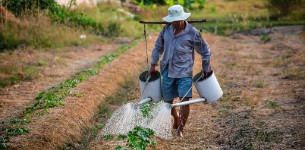
This study of agricultural PPPs in Ghana, Malawi, and Kenya calls for governments, donors, and companies to ensure greater participation from small
Four partnership principles by the UK Department for International Development (DFID), which govern investment in nutrition and other development p

This is a report from a workshop on communication and collaboration on public health and nutrition between the private sector, academia, government

Podcast by Bond looking at the varied roles of private sector finance and private sector led development in reaching the sustainable development go
Comment piece by Lawrence Haddad looking at incentives for business to address the global nutrition challenge.

The Multi-Stakeholder Guide by Wageningen University maps sixty tools spanning the six stages of the partnership process: connection, shared langua
Food Fortification in a Globalised World is based on 50 years’ experience across public and private sectors.
For anyone interested in the cost-benefit of food fortification as a public health intervention.
Address by Nigeria’s Scaling Up Nutrition Focal point at Nigeria’s Future Fortified event in 2016.

In this video, watch the forum discussion with Harvard professor and lead author of the EAT Lancet commission on healthy diets, restauranteur, and

Leading experts and co-chairs of the EAT-Lancet Commission, Prof Walter Willett and Prof.

Each year, the Global Nutrition Report provides a snapshot of the state of malnutrition.

This 2019 Lancet Commission Report looks at systemic causes for the triple problems of obesity, undernutrition, and climate change.

This landmark paper does not only make recommendations, it shows what can be done with the global resources we have and are likely to have in the f

The Access to Nutrition Index is published by the Access to Nutrition Initiative (ATNI)
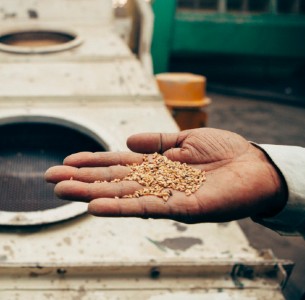
The Global Fortification Data Exchange (GFDx) is an online analysis and visualisation tool that aims to help policy makers and experts understand d
Paper by Sight and Life puts forward a framework for public private engagement in nutrition.
Looking outside of the nutrition sector towards the climate change agenda brings a fresh perspective to the issue of incentivising responsible priv

Restricted access article in the Food Policy Journal looking at shared responsibility for food safety governance.
Article by Parag Khanna at the Financial Times discussing the rise of 'Metanationals', or stateless companies.
Michael Devereux, Director at Oxford University Centre for Business Taxation, shares his views on tax avoidance and explains the international tax
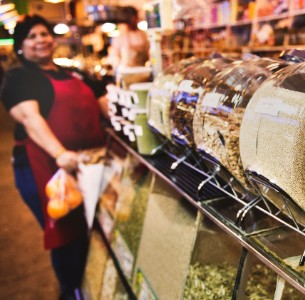
This report, compiled for the European Competitiveness and Sustainable Industrial Policy Consortium, gives a detailed look into the impact of food
In the U.K.’s Budget 2016 a soft drink industry levy was announced to reduce consumption of sugary soft drinks.
Briefing by ActionAid revealing that one in every two dollars of large corporate investment in developing countries is being routed from or a via a
Recent Guardian article by world-renowned economist and Nobel laureate, Joseph Stiglitz explores the truth about tax evasion.
Briefing by Jeffrey Sachs et al on how to maximize public private partnerships and combine public finance regulation with private market participat

The Harvard Kennedy School Corporate Responsibility Initiative looks at what is needed to boost investment in value chains, especially from small a

Policy brief by the Global Panel on Agriculture and Food Systems for Nutrition looking at the evidence for gov

This article in the British Medical Journal reviews strategies that governments can use to improve nutrition and health.
This paper develops a model for corporate political philanthropy based on findings from the tobacco industry.
The Food Climate Research Network calls for a more equitable balance of power within the food system.
A helpful review of Options for keeping the food system within environmental limits
Honest and provocative report by the Civil Society Reflection Group on the 2030 Agenda for Sustainable Development.

This report offers great insight into the important role of city-level action in driving food system change.
Two-page briefing by the FAO on a tool to help agriculture become more sustainable and empower smallholders.
‘It is through core business that truly transformative impact will happen,’ says John Fallon, Chief Exec, Pearson.
Technical report from the Sustainable Development Solutions Network on the Post-2015 Development Agenda.
Working paper by Consultative Group for International Agricultural Research (CGIAR) looking at how corporate social responsibility and supply agree
In this policy brief, the Global Panel makes the case that healthy diets are a foundation underpinning positive progress towards the Sustainable De
Unilever is driving change within the palm oil industry with a focus on more efficient land use and forest protection.
Mars have produced a position statement on their contribution to greenhouse gas emissions.
Unilever’s Paul Polman is a Champion 12.3 – part of a global coalition to accelerate action to achieve UN Sustainable Development Goal 12.3 to half
Report from a workshop on collaborative learning at the Institute of Development Studies in 2017, Brighton, U.K.
This report by the European Union addresses challenges of implementing country cooperation frameworks that fall under the auspices of the New Allia
This report summarizes the findings of a workshop for representatives of the Tanzanian government, development partners, civil society, and private

This 21-page briefing by Society Works summarizes information on 152 social entrepreneurs working on food production, manufacturing, distribution,
Written evidence submitted by Farm Africa and Self Help Africa on December 2012 to the U.K International Development Committee.

Public-Private Partnership Lab: Food and Water is a four-year action research and joint learning initiative to explore the effectiveness of PPPs.

Presentation by Aniko Juhasz, Director, Research Institute of Agricultural Economics linked to the European Commission conference: Harnessing Resea

This briefing addresses the distinct roles that each partner can play in promoting nutrition under the Comprehensive African Agricultural Developme
This 2015 report by the Asian Development Bank does not directly look at global food supply chains but has valuable and wide-reaching lessons.
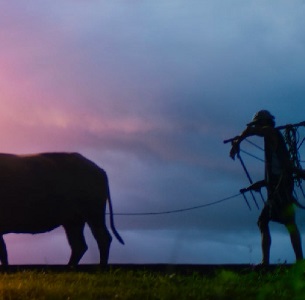
Covers a checklist for formal public private partnerships spanning: rationale, design, implementation, sustainability, and the roles for brokers at
Presentation for the Wellcome Trust looking at the role of policy on public food choices.
Principles guiding Unilever’s food and beverage marketing communications, including a promise not to direct any marketing communications to childre
A technical briefing for anyone working on behavior change initiatives at scale.
Lawrence Haddad, Executive Director at GAIN and winner of the World Food Prize 2018 calls for a revolution in the way we create demand for nutritio
Working paper from the Harvard Kennedy School for Business looking at seven guiding principles for cross-sector action on public health.
This paper asks important questions, such as: How has high level political momentum for nutrition been generated?
This article looks at the nature of public private engagement amidst cyclical and systemic food insecurity.

This short paper by the Food and Business Knowledge Platform focuses on public private partnerships (PPPs) in the agricultural sector in Africa.
The context for this publication by Save the Children is Sustainable Development Goal 2: ‘Ending hunger, achieving food security and improved nutri
Academic paper by John Hoddinot et al looking at the different models of engagements for public-private partnerships.
This peer review article in Nutrition Reviews assesses existing public private partnership (PPP) guidelines, successful PPPs and summarises intervi
This briefing by the European Centre for Development Policy Management has some interesting implications for cross-sector collaboration.

Evidence from the Transform Nutrition Research consortium led by the International Food Policy Research Institute focusing on how to transform the
This article by Path celebrates the diverse strengths of public and private partners.
The Consumer Goods Forum seeks to secure consumer trust and drive positive change by bringing together over 400 consumer goods re

This book by the International Labour Organisation asks important questions about food at work, including: employment conditions, wages
This short report gives an overview of rice fortification literature indexed in PubMed, including examples of successful public private engagement
The US Food and Drug Administration (FDA) regulates the addition of iodine to infant formulas, the iodisation of salt, and the addition of salt and
This 376-page document is WHO’s guidance to countries looking to design and implement food fortification programmes.
This book examines food fortification in all its forms.
In this synopsis - aimed at business leaders, governments and implementing agencies - IFPRI and Nourishing Millions provide recommendations on how
In 2015 the Nourishing Millions project reviewed literature and case studies to show the evolution of nutrition during the past 50 years.

This snapshot reports sets out the work of GAIN’s partners to employ food fortification as one way to improve
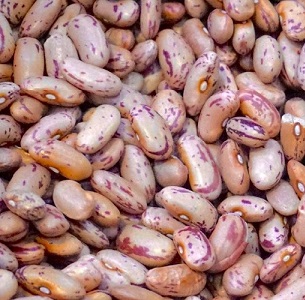
A concise account of lessons learned on salt and iron iodization by world renowned economists, as part of the costs benefit analysis on leading dev
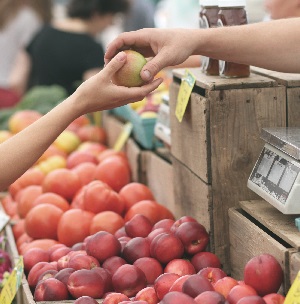
This paper looks at three pillars through which the private sector may directly or indir

Being able to track and measure the impact of business on food and diets is key to ensuring that businesses make positive contributions
How can the world feed 9 billion people by 2050? This is the central question in a report by the World Resources Institute.

This report analyses fourteen projects in low and middle income countries working on reducing food loss and waste in food systems.

This blog by Brian Lipinski at the World Resources Institutes draws attention to a new international day: 28 April - Stop Food Waste Day.

For a compilation of statistics and infographics on global food loss and waste look no further!
This presentation is the outcome of a high level policy dialogue in 2015 by the Asia-Pacific Economic Cooperation.
This article by a non-profit called Concordia makes the simple argument that food insecurity and loss can only be addressed by increased collaborat

Innovation has led to the world’s first food loss and waste calculator that instantly estimates the value of food loss and waste in terms of the nu

The Food and Agriculture Organization has produced a short video to show that food loss and food waste is not just a developing country issue.
This report looks at supply chain waste based on Feedback's research on export supply chains in Peru, Senegal, South Africa, the UK and a major Eur
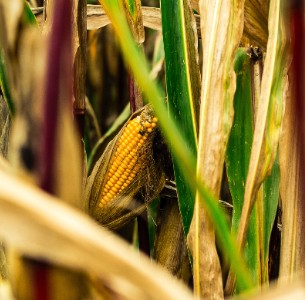
This is the third annual progress report on behalf of Champions 12.3, a coalition of executives from governments, businesses, international organiz
"An innovation evolution is needed to maximize the future impact of food fortification," says Dipika Matthias, Senior Program Manager at the Gates








